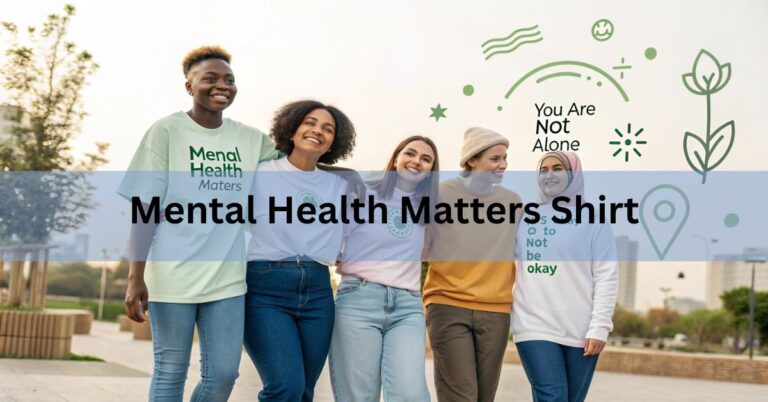CCP Intro to Behavioral Health and Human Services – Complete Guide for Students!
Introduction
If you are planning a career in social work, counseling, psychology, or any human service profession, the CCP Intro to Behavioral Health and Human Services course (BHHS-101) is the perfect first step. Offered by the Community College of Philadelphia (CCP), this course introduces students to the foundations of behavioral health and human services, blending theory, history, ethics, and practical skills.
This guide explores every detail about the course—what it covers, why it matters, and how it can lead you to a meaningful career. Whether you are a new student or someone considering a return to school, understanding BHHS-101 can help you plan your academic and professional journey.
What is BHHS-101: Introduction to Behavioral Health and Human Services?
BHHS-101 is a 3-credit introductory course offered online and on campus at CCP. It is part of the Associate in Applied Science (A.A.S.) in Behavioral Health and Human Services program.
The main purpose of the course is to help students:
- Understand the history and development of human services.
- Explore different roles and responsibilities within behavioral health professions.
- Develop basic communication and self-awareness skills.
- Learn about ethics, values, and cultural sensitivity in helping professions.
By completing this course, students build a strong foundation that prepares them for more advanced classes and fieldwork experiences.
Why Behavioral Health and Human Services Matter
Behavioral health and human services are vital fields that support individuals, families, and communities dealing with challenges such as mental health issues, addiction, poverty, and social inequality. Professionals in this field:

- Provide direct support through counseling, case management, and advocacy.
- Work in diverse environments such as schools, rehabilitation centers, hospitals, and community organizations.
- Contribute to creating healthier and more equitable communities.
This makes BHHS-101 more than just a course—it’s the starting point for careers that have a direct impact on people’s lives.
Course Structure and Credits
The CCP Intro to Behavioral Health and Human Services course follows the standard 3-0-3 format:
| Component | Details |
| Credit Hours | 3 credits |
| Lecture Hours | 3 hours per week |
| Lab/Practical Hours | None (theoretical and discussion-based) |
| Delivery Format | Online and on-campus options available |
| Placement in Program | Required core course in the Behavioral Health and Human Services A.A.S. |
This structure allows students to balance theory with self-reflection and group discussions without being overwhelmed by heavy lab work.
Key Learning Objectives
Students who take BHHS-101 can expect to gain several important skills and areas of knowledge:
- Historical Knowledge – Understand how human services evolved, including major reforms in mental health and social care.
- Professional Awareness – Explore the scope of practice, job roles, and ethical responsibilities.
- Values and Ethics – Learn professional values such as confidentiality, respect, and integrity.
- Self-Awareness – Reflect on personal values, biases, and motivations for entering the field.
- Communication Skills – Practice active listening, empathy, and professional communication.
- Technology in Human Services – Explore how digital tools and record-keeping systems support modern practice.
Course Topics and Modules
The CCP Intro to Behavioral Health and Human Services course is usually divided into modules that cover the following themes:
Module 1: Foundations of Human Services
Explores definitions, principles, and the importance of human services in modern society.
Module 2: History and Evolution
Covers the development of social services, public mental health, and community support systems.
Module 3: Theories and Models
Introduces students to psychological, social, and biopsychosocial approaches to understanding human behavior.
Module 4: Ethics and Professional Identity
Focuses on codes of conduct, professional values, and building self-awareness.
Module 5: Communication and Technology
Teaches verbal and non-verbal communication, note-taking, and use of digital tools in service settings.
Module 6: Populations and Settings
Examines client diversity, cultural sensitivity, and various work environments such as rehabilitation centers, clinics, and community agencies.
Skills You Will Gain
One of the biggest benefits of taking BHHS-101 is that it equips students with practical and transferable skills:
- Helping skills like empathy, patience, and problem-solving.
- Critical thinking to analyze cases and apply theory in real-life contexts.
- Communication skills for effective interaction with clients and colleagues.
- Ethical decision-making for challenging situations.
- Cultural competence to work with diverse populations.
These skills are not only useful for careers in human services but also for personal development and growth.
Career Paths After BHHS-101
While BHHS-101 itself is an introductory course, it forms the foundation for many career opportunities in behavioral health and human services. After completing the full degree, students can pursue roles such as:
- Case Manager
- Behavioral Health Technician
- Substance Abuse Counselor (entry-level)
- Community Outreach Worker
- Mental Health Aide
Some graduates also transfer to four-year universities for advanced studies in Social Work, Psychology, or Counseling.
Why Choose CCP for Behavioral Health and Human Services?
The Community College of Philadelphia has a strong reputation for preparing students for real-world careers. Some of the reasons students choose CCP include:
- Flexible learning formats (online, hybrid, in-person).
- Affordable tuition compared to four-year universities.
- Faculty with professional experience in human services.
- Transfer agreements with local universities for further study.
- Support services like academic advising and career counseling.
Frequently Asked Questions (FAQs)
Q1. Is BHHS-101 required for all Behavioral Health and Human Services majors?
Yes, it is a core requirement and serves as the foundation for advanced courses.
Q2. How long does it take to complete the course?
The course usually runs for a full semester (15 weeks), with three hours of instruction per week.
Q3. Can I transfer BHHS-101 credits to another college?
In most cases, yes. CCP has transfer agreements with several universities, particularly in programs like Social Work or Psychology.
Q4. Is the course suitable for someone with no background in psychology?
Absolutely. BHHS-101 is designed as an introductory course, so no prior experience is required.
Q5. Are there job opportunities right after this course?
By itself, the course is not enough for full employment, but it is the first step in the A.A.S. program that prepares students for entry-level roles.
Q6. Does BHHS-101 include any fieldwork or practical experience?
No, BHHS-101 is primarily a lecture-based and discussion-focused course. Practical fieldwork usually comes later in the Behavioral Health and Human Services program through advanced courses and internships.
Q7. Can BHHS-101 help me decide if a career in counseling or social work is right for me?
Yes, one of the main goals of the course is to expose students to different areas of human services. Many students use it as a way to test their interest before committing to a full degree or career path.
Q8. What types of assignments are common in BHHS-101?
Students can expect reflective essays, case study analyses, short exams, and group discussions. Some instructors may also assign projects where students research human service agencies in their communities.
Q9. Is BHHS-101 only for majors, or can other students take it as an elective?
While the course is required for Behavioral Health and Human Services majors, it is open to all students as an elective. It’s especially popular with those considering careers in education, healthcare, or criminal justice.
Q10. How does BHHS-101 prepare students for cultural diversity in human services?
The course emphasizes cultural competence by teaching students to recognize their own biases, respect differences, and adapt communication styles when working with diverse populations.
Conclusion
The CCP Intro to Behavioral Health and Human Services (BHHS-101) course is more than an introduction—it’s a gateway to a meaningful career in helping professions. By exploring history, ethics, communication skills, and self-awareness, students gain the tools they need to succeed in both academic and professional paths.
If you are passionate about making a difference in people’s lives, BHHS-101 is the perfect starting point at the Community College of Philadelphia.
Read More:
- Amanda Mascarelli Senior Health and Medicine Editor Dobbs The Conversation – A Deep Dive!
- Kosz Digestive Health Clinic Boise Aroentixrezo – Complete Guide for Patients!
- Digestive Health Center of Plano – A Complete Guide for Patients!
- Daniel Monahan Insurance Transition Health Benefits – Complete Guide!
- Corewell Health Zeeland Hospital – Complete Guide for Patients and Visitors!






